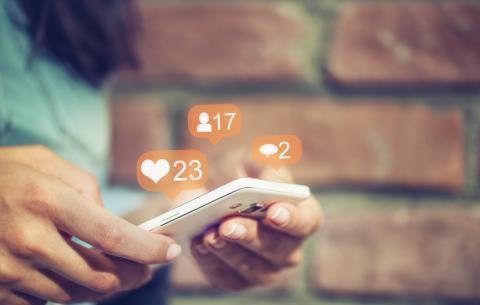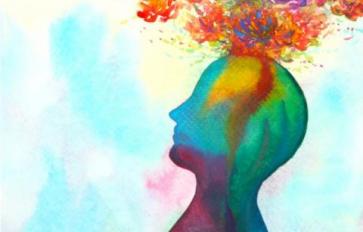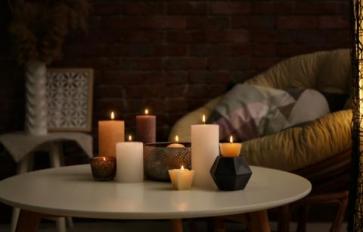Krista Love is a yoga teacher, workshop facilitator and community organizer, whose offerings explore consent and conscious relationships, connection & healthy touch, and holistic, earth-focused living. She is inspired when experiencing nature’s wonder, expressing freedom on the dance floor, riding her bike, and cooking and sharing delicious wholesome food.
Certifications and Qualifications:
- 35 hour Yin Yoga Teacher Training (Yoga Alliance), January, 2016
- 200 hour Yoga Teacher Training (Yoga Alliance Certified), November, 2014
- Pelvic Floor Training (with Natalie Stawsky E-RYT 500), November, 2014
- Applied Anatomy for Yoga Asana (with Jamie Elmer E-RYT 500), April, 2015
- YTT Assistant Teacher (Rasa Yoga Center & Sarah Sol E-RYT 200), July, 2015
- Master’s in Interdisciplinary Studies (M.I.I.S) (Applied Anthropology, Women’s Studies & Sociology), Southern Oregon University, July, 2014
- Certificate in Mediation and Conflict Management, Southern Oregon University, December, 2013
- Certificate in Applied Social Research, Southern Oregon University, July, 2014
- Bachelor's of Science~Communication Studies: Broadcasting & Digital Media, University of Wisconsin- La Crosse, December 2011
Chat With A Healer: Krista Love
KristaLove and James Kapicka created Home Free Yogis. They travel to share love, light, and the healing power of yoga! This week, we interview KristaLove on the healing power of yoga and the healing power of touch.
HIGHLIGHTS:
- To have that experience of connection which is a theme that really inspires both James and I that when we feel connected to the self and the whole that there's trust in the path of the universe, that there's the confidence that every step that we're taking is the right step and that we’re there at the right time. Just getting back in touch with, you know our playfulness, our excitement and joy for life and an opportunity to be, again in the healing power of nature and to create community and to be... just in that Yin place where exactly as you are, as you come, is perfect and it is enough, it's more than enough and so we can encourage one another to just be and breathe and know that everyone is doing their best and that...to just let go of some of the weight of the world and just really enjoy the presence of yourself and others
- What I love about [the healing power of (nonsexual) touch] is, I mean you can't... it's difficult to hug without being hugged and you can't touch without being touched and because we are these energetic beings who are highly influential of one another, one of the most potent ways that we can help to shift this energy or paradigm that we're currently in is to embody it and then pass it on and touch is a really great way to do that and I've had really beautiful experiences through dance or through assisting a yoga class and teaching or through sharing a hug with someone that I feel this deep connection to them before I might even...I may not even know their name or where they live or what they do for living, all of these things that are ultimately very temporary. But this vibration that we carry is something that helps us, you know kind of find the right path as we move from lifetime to lifetime and so it can connect with each other in a way that is beyond the mental construct of who somebody is or their story or you know unconscious prejudices that we might hold about someone that we're not aware of and so we really bring it to this body energetic sensor of like the central nervous system to help all bring us into connection and union which is yoga with one another and again that ripples out and so it's like changing the world one hug at a time.
- It's really about calming the body down, moving into a place of embodied surrender to help counter balance which shows up so often for a lot of us in our daily lives which is this go-go-go, achieve, do, really young centered lifestyle and to create a place for rest and rejuvenation and connection to self, first and foremost.
INTERVIEW (AUDIO)
INTERVIEW (TRANSCRIPT)
Krista: We call ourselves Home Free Yogis and that is because we live full-time in a cabover camper that sits in the back of our default pickup truck. We love spreading and sharing the transformational power of yoga. Specifically, Yin yoga is the style that we are most passionate about and also have deep relationships to more strength Vinyasa and really love restorative styles as well. It's a life that I'm not sure I ever knew I would be living and it has a lot of incredible benefits as far as the different people and communities that I've gotten to interact with and drop into and join and seeing wonderful different communities. There's just so many beautiful people around the world and we've gotten to see a lot of the natural beauty, specifically of California, and I really enjoy going to different parks whether that be city parks, state parks, and national parks and just little hidden gems that I think a lot of people may not be able to experience when they spend most of their time in one place, kind of doing their thing and in their rhythm. And it has its challenges as well, like any lifestyle can, and it's allotted us an ample amount of freedom to just explore. I love seeing all the nature, that was like my favorite part and again... specifically yoga communities and also friends and family that we have all over the place that we get to connect to and see in the different way than we would if we were visiting like maybe how a normal visit might feel, it's a really unique way of being.
Marji: Yeah, and I think about also as you say that like you said like there's so many gems that are out there not only just community but spaces we have, not just in California but even living in California sometimes we forget to go places like you mentioned earlier that you're in Bishop right now. It's such a really precious little place and beautiful yet someone might not get to visit it and it might only be 3 hours away, or some of these little parks and just things and then when you get to stay there and actually work with the energy like work with it, by being with it, sitting with it and sharing with it, something... there's something naturally amazing that happens, right? I just... I love that you're getting to experience that. It's such a cool thing -- with of course your baby puppy.
Krista: Yeah, he makes it all the more fun because we get to take him for a walk into dog parks and he really adds an element that I can't imagine not having as he sits on my lap right now and I'm just petting his little head.
Marji: I can just picture like whiskers and his eyes looking right now, so cute. Anyone listening who, if you get an opportunity to take one of their classes or one of their courses that they offer, it's really...I can't remember, I took my first Yin class with James a long time ago, and anytime I get the chance and I mean, anytime, and you know this, I am there and I share it with people because it's a really beautiful experience and each time I've been in the room and shared space with both of you, there is an interconnection inside myself that allows me to go deeper into that and not just the postures but the energy that you share with everyone and it's very open, inclusive, deep and transformational. So just please look them up on their site and she'll share the information before this is over but it's really, really great. Anyway, so you travel and are doing these yoga classes and teacher trainings and I know that you guys work with a lot of the festivals. So if someone did want to reach out to you, how can they find you besides being on Basmati?
Krista: Yes, Basmati is an excellent way to get connected with us. We also have a blog and website, that's homefreeyogis.wordpress.com and I write a blog about our travels and what I learn through them and through being in my relationship with James and that is about once or twice a month and then you can also look up YogaJames.com which is his website and mine is KristaLove.com and it has information not just about the ways in which we are active in the yoga world but also festivals and writing, which is something I'm really passionate about, and just creating healthy community and an authentic and unique way of being in the world for each person. So we really value that it is within our individuality that we create strength and then come together in these tight knit communities where each person is celebrated and accepted for who they are and honored for their unique gifts and really a stone, like a pillar, of how we teach is encouraging each student to intuitively find where their body wants to be, how their breath moves, so that a practice or an experience that they get to take with us can leave an impression that then they can find that on their own so that we're not needed to be able to have a deep yoga experience but if we are able to ignite that passion or curiosity or connection within an individual then our hope is that they can continue to find that deep connection to source within themselves on a daily basis and that really ripples out to the whole world so we all become who we’re really meant to be.
Marji: That's so beautiful. I know that I can say from being in the space and sharing energy with you that that's just one small piece that's really huge because it really does... there's a magnificent thing that happens. I know that you also, and I'd like to share a little bit about being an Affection and Consent advocate and what that means for someone who doesn't know what that is.
Krista: So the way that it interacts in our yoga teaching is that we are really passionate about hands on assist and the power of non-sexual healing touch and the... for a bit, came up with Affection and Consent Advocate and for me, affection is a way that we can transfer the vibration of love from one person or one being to another and we tend to share affection when we have appreciation or reverence or celebration or joy for another, whether it's a sweet little puppy or a friend or partner or the way that it moves through James and I is spreading out into the world of what we might call strangers.
The power of it from me really comes from the neurochemistry behind what happens when we share consensual-mutual touch and that it helps release oxytocin which is a bonding chemical so we feel this deep sense of sort of tribe and communion with another person. It helps to decrease stress and stimulate the Vagus nerve, which allows the parasympathetic nervous system to be stimulated, which allows our body to be calm and the rest and digest state.
It helps us have a stronger immune system so we can fight off infection and illness more easily and it really ties in the sense of community and people may have experienced it when travelling to other cultures or experiencing other ethnic cultures even within the United States where there can be a lot more just free-flowing casual touch which can really help us feel connection to ourselves and to this human family that we're a part of and the keystone of that is that it's consensual and that means that it's mutually agreed upon between two people. In the world of consent, for me it's really empowering because it encourages me to know what I need, where my boundaries are and where I'm willing to meet and share with another person. In that space there's really this richness that arises that I think feeds both people, like there's like this third entity that kind of emerges this creative life force that comes about when we join together in some form of union which is definitely not always sexual and does not need to be for spirit to really show up and that creative force is what creates art and music and dialogue and dance and sometimes babies and children or gardens, just this abundance of fun playfulness that is really what the universe is made out of and so we find that in sharing touch with one another, that we become happier and healthier and we create an avenue for a life to really show up more deeply for us which then in turn hopefully means that we show up more deeply for life.
Marji: Yes, and somehow we've lost sight of touch, and it's interesting, as you speak I think about like even a client maybe who thinking of someone in particular and a good friend who doesn't have a lot of interaction with people, she's in her mid-70s and then you know I've taken her to get massage, actually I've taken her to a couple of James's classes years ago and just the interaction of hugging her and what that does for her because she doesn't have a lot in her life bring so much out of her that the change in just a simple, just even a simple hug, right, just that can be life changing for someone and there's nothing... it's just so beautiful, it is so beautiful and we do that so often with our pets (or I do) or these little kids and sometimes we have some resistance towards other people. I'm kind of a hugger so... you know, but we crave that and we need that and you’re right, it doesn't have to be sexual, it can be, obviously, but there's this thing that happens when it's very natural that is... well it magnifies, right, and not just in our physical body but it's a really, really beautiful thing; I just love it. So I love that you guys are sharing that with everyone and it's... it is changing and it changes the consciousness of not only the room but the space around us, right, and people carry that with them.
Krista: Exactly.
Marji: So it's really cool.
Krista: Yeah, and what I love about it is, I mean you can't... it's difficult to hug without being hugged and you can't touch without being touched and because we are these energetic beings who are highly influential of one another, one of the most potent ways that we can help to shift this energy or paradigm that we're currently in is to embody it and then pass it on and touch is a really great way to do that and I've had really beautiful experiences through dance or through assisting a yoga class and teaching or through sharing a hug with someone that I feel this deep connection to them before I might even...I may not even know their name or where they live or what they do for living, all of these things that are ultimately very temporary. But this vibration that we carry is something that helps us, you know kind of find the right path as we move from lifetime to lifetime and so it can connect with each other in a way that is beyond the mental construct of who somebody is or their story or you know unconscious prejudices that we might hold about someone that we're not aware of and so we really bring it to this body energetic sensor of like the central nervous system to help all bring us into connection and union which is yoga with one another and again that ripples out and so it's like changing the world one hug at a time.
Marji: It's perfect. So now everyone go do that today and see what it feels like -- consciously see what that feels like. So then I will ask you a little bit about the retreat that you guys are putting on in the Santa Cruz Mountains and what that's going to be like.
Krista: Yes. We are really, really excited, this is the first retreat that James and I have facilitated together. I have a number of years’ experience in co-facilitating retreats with other women so it's an avenue I feel really comfortable with and it's really an invitation for people to explore what retreat really is. You can break down the word as “retreating yourself” and it's Yin restorative yoga and meditation retreat and it's about allowing time and space to be.
One of the most potent ways that I find that in my own life is when I'm on the mat and/or I'm out in nature and the Mount Madonna Retreat Center is stunning and gorgeous in the Santa Cruz Mountains and it's super lush and it has these beautiful woods, redwoods and cedars and pines and there's ferns everywhere. And it's a place for people to come and really be held and nurtured and so there will be daily Yin and restorative yoga so it's really about calming the body down, moving into a place of embodied surrender to help counter balance which shows up so often for a lot of us in our daily lives which is this go-go-go, achieve, do, really young centered lifestyle and to create a place for rest and rejuvenation and connection to self, first and foremost.
Then, however, whatever degree people choose to other so there will be Yin yoga massage which is a practice that we've developed and are really passionate about sort of time, elements of the healing and restorative elements of Yin yoga with the power of touch and Thai yoga massage. They have amazing vegetarian food on site that we get the benefit of exploring and it's really a place, you know, to come and feel cocooned is the word I would use, to just let go of all of the junk and the stuff that just builds up over time because it's kind of just what happens and to clear that out so that when we move back into the world afterwards, we can see more clearly, we can receive more clearly and we can be a vehicle for what our greatest purpose is in life.
To have that experience of connection which is a theme that really inspires both James and I that when we feel connected to the self and the whole that there's trust in the path of the universe, that there's the confidence that every step that we're taking is the right step and that we’re there at the right time. Just getting back in touch with, you know our playfulness, our excitement and joy for life and an opportunity to be, again in the healing power of nature and to create community and to be... just in that Yin place where exactly as you are, as you come, is perfect and it is enough, it's more than enough and so we can encourage one another to just be and breathe and know that everyone is doing their best and that...to just let go of some of the weight of the world and just really enjoy the presence of yourself and others.
Marji: Well, I definitely will be there. Do you want to share with everyone the dates and how they can find out about that?
Krista: Yes. It is... we opted for a 3-night retreat because we felt like that was really important to have the little extra time so it is September 28th through October 1st of 2017 and you can go to Home Free Yogis or YogaJames.com. You can also find more information about it on Facebook, it's Rest and Renew, Yin and Restorative Yoga Retreat. If you want to know more about the venue, you can check out Mount Madonna Retreat Center, it's a really beautiful place, that there's... just epic art and these incredible temples that you can feel how much there have been lots of prayer and lots of energy put in to create such a healing environment. And there's different accommodation options so you can choose to sleep in a tent so you're like straight on the ground or all the way up to a single room with a bath so you can have as much nurturance as you would like. Food is included and there's opportunity for privates with both James and I to do one-on-one Yin massage which is a delicious practice. I've had many people leave and experience and I feel just as fulfilled as they do after having like a 60 or 90 minute experience of gentle yoga Yin incorporating Thai massage into it as well. And again the venue is stunning; it's like some of the most natural beauty I've ever seen.
Marji: It's very beautiful.
Krista: It'll be wonderful. So I really look forward to who shows up and how it will go.
Marji: I know. I'm really looking forward to it. Perfect for going into, you know it's right the end of summer, well a little busy in the summer but what a beautiful time, right? It's going to be so perfect. I'm very much looking forward to it and sharing space with everyone and the venue is really beautiful, it's really amazing. So I'm so grateful that you took the time. I know being, you know a Home Free Yogi sometimes it's hard to have a quiet space but it's not too quiet that you have... yeah, it's like somewhere where there's not service but I really appreciate that and please tell James, I said "Hello" and if there's anything that comes up that you'd like to share, just let us know and we can share it with all of the listeners so I really appreciate that.
Krista: Yeah, definitely.
Marji: Enjoy Bishop.
Krista: Thank you.
Marji: Have a beautiful day.
Krista: I will. Thank you so much Marji. We really appreciate Basmati too. It's really wonderful to have this conscious community come together to spread healing because it's something that we all need and are all capable of sharing.
Marji: Receiving, right, so yeah. So thank you so much for being a part of it and I really appreciate it. Okay. Have a beautiful day.
Krista: You too. Bye-bye.
Marji: Thanks Krista. Bye-bye.









